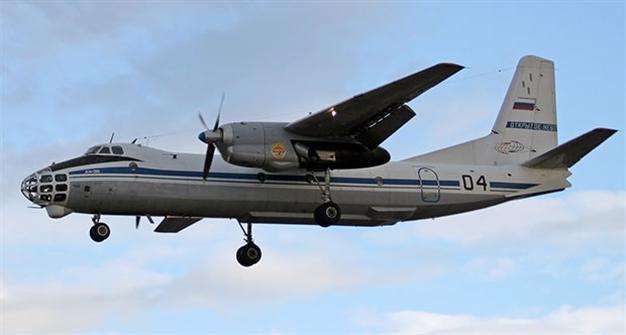Turkey dismisses Russia’s charges over breaking aviation treaty
ANKARA
 The Turkish Foreign Ministry has dismissed accusations from the Russian Defense Ministry, which accused Ankara of breaching the Open Skies Treaty by refusing to allow a reconnaissance plane to fly over Turkish territory near Syria.
The Turkish Foreign Ministry has dismissed accusations from the Russian Defense Ministry, which accused Ankara of breaching the Open Skies Treaty by refusing to allow a reconnaissance plane to fly over Turkish territory near Syria. According to an implementation conducted since 2006 under the Treaty on Open Skies, Turkey conducts observation flights over Russian airspace approximately four times a year, while Russia conducts observation flights over Turkish airspace approximately twice a year.
In line with the 2016 plans, a Russian An-30B aircraft was due to conduct a surveillance flight over Turkish territory on Feb. 1-5 and Turkish officials will also be on board during the flight, the Turkish General Staff had stated in a Feb. 1 statement.
“Observation flights are performed when the observing Party and the observed Party reach agreement on the mission plan. In the case of the observation flight requested by the Russian Federation for Feb. 2-5, 2016, an agreement could not be reached on the mission plan and the flight has thus not been conducted,” the Turkish Foreign Ministry stated on Feb. 4.
“The limitations imposed by the Russian Federation on observation flights over its own territory are already known by all States Parties to the said Treaty. On the other hand, the observation flight of the Russian Federation in Turkey in December 2015 was conducted on the basis of mission plan changes as suggested by Turkey,” said Foreign Ministry spokesperson Tanju Bilgiç in response to a reporter’s question.
The Russian Defense Ministry had stated on Feb. 3 that Turkey’s refusal to allow a reconnaissance plane to fly over its territory near Syria constitutes a violation of the Treaty.
“This creates a dangerous precedent over a lack of control of the military activity of a member state of the Open Skies Treaty,” the Russian Defense Ministry said.
The Russian plane’s itinerary for Feb. 1-5 was transmitted to the Turkish army in advance but authorization was refused, with the Ankara authorities claiming to have never received the request, it added.
Relations between Ankara and Moscow are at their tensest since the end of the Cold War after the downing of a Russian warplane on Turkey’s border with Syria on Nov. 24 over airspace violations. The incident further stoked tensions between the two countries, which support opposite sides in Syria’s war.
Russia ‘distorting’ the issue
In a separate statement released on Feb. 4, Turkish Foreign Ministry spokesperson Bilgiç also responded to Russian Foreign Minister Sergei Lavrov’s remarks that Turkey did not warn Russia that another Russian SU-34 jet violated Turkish air space on Jan. 29.
Moscow was assuming a familiar policy of “distorting” the issue, Bilgiç said, stressing that Ankara informed the Russian ambassador of the violation.
“In any case, we persist with our calm stance, which we have displayed since the beginning of the problem, despite the defamation campaign and provocations conducted by Moscow against our country since Nov. 24.
On this occasion, we again repeat our call for resolving the current tension through dialogue,” he added.
















